Cystic fibrosis (CF) is a life-threatening genetic disorder that affects the lungs, digestive system, and other vital organs. It causes thick, sticky mucus to accumulate in the lungs, leading to chronic infections, inflammation, and respiratory issues. While traditional treatments help manage symptoms, new treatment options are essential for improving long-term health outcomes for CF patients.
One such treatment option gaining attention is Thymosin Alpha-1 (TA1) peptide, a naturally occurring peptide that plays a critical role in immune regulation and inflammation control. By enhancing immune function and reducing inflammation, TA1 peptide CF treatment could be a game-changer for those struggling with CF.
Could this peptide be the breakthrough that CF patients have been waiting for? Let’s explore how TA1 peptide might help manage cystic fibrosis symptoms and improve lung health.
The peptides mentioned in this article are for research purposes only and are not intended for human use.
The immune system of cystic fibrosis patients is often weakened, leaving them vulnerable to infections. This makes immune regulation a crucial part of managing CF effectively. The TA1 peptide helps modulate immune responses by improving the activity of immune cells like T-cells, which are essential for fighting off infections.
In CF, the immune system frequently reacts inappropriately to infections, causing chronic inflammation that further damages lung tissue. TA1 peptide regulates this immune response, ensuring that the body defends itself without causing excessive harm.
By controlling immune cell activation, TA1 could reduce the frequency and severity of lung infections, making it a potential therapeutic option in cystic fibrosis lung health management.
Discover TA1 Peptide from Direct Peptides , a powerful immune-regulating peptide that helps manage cystic fibrosis symptoms by boosting immune function and reducing inflammation.
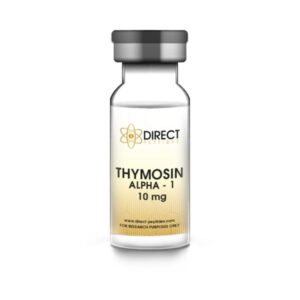 In CF patients, T-cells, which are responsible for fighting off infections, are often not produced in sufficient numbers or lack the necessary activation.
In CF patients, T-cells, which are responsible for fighting off infections, are often not produced in sufficient numbers or lack the necessary activation.
This makes it harder for CF patients to combat the persistent lung infections they often face. Thymosin Alpha-1 peptide helps boost the production of T-cells, enhancing the body’s immune response.
TA1 not only increases the quantity of T-cells but also activates them, ensuring they function effectively against harmful bacteria in the lungs.
This T-cell stimulation is crucial in reducing the severity of infections that lead to lung damage.
With TA1 peptide for cystic fibrosis, boosting T-cell production could be a key factor in improving long-term health for CF patients by reducing the impact of bacterial infections on their respiratory system.
While TA1 peptide is essential in boosting T-cell production to combat infections, it also plays a vital role in controlling inflammation.
By managing inflammation effectively, TA1 helps protect lung tissue from further damage, addressing another major challenge CF patients face.
Explore Peptide Supplies at Direct Peptides for all your reconstitution requirements.
Chronic inflammation is one of the most dangerous complications of cystic fibrosis. It causes irreversible damage to lung tissue, making it harder for CF patients to breathe properly. TA1 peptide helps control inflammation, a crucial factor in slowing lung deterioration and improving overall lung health.
By regulating the immune system’s inflammatory responses, TA1 peptide for cystic fibrosis prevents excessive inflammation that can damage lung tissue.
The peptide works by controlling immune cell activity, ensuring that inflammation is kept in check without impairing the body’s ability to fight infections. By reducing inflammation, TA1 can help protect lung tissue from further damage and reduce the symptoms that affect CF patients’ quality of life.
While TA1 peptide plays a key role in controlling inflammation, its benefits go even further. By addressing both inflammation and immune function, TA1 is also essential in slowing lung deterioration, offering significant potential for improving long-term lung health in CF patients.
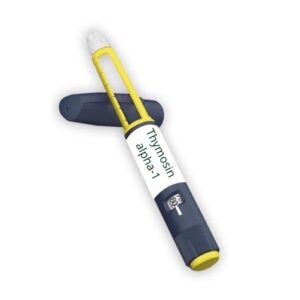 Lung deterioration is a major concern in cystic fibrosis, as the combination of chronic infections and inflammation leads to irreversible damage over time.
Lung deterioration is a major concern in cystic fibrosis, as the combination of chronic infections and inflammation leads to irreversible damage over time.
Slowing this deterioration is critical to maintaining lung function for as long as possible. TA1 peptide offers potential in this area by reducing chronic inflammation and boosting immune function.
By addressing inflammation and improving immune system responses, TA1 peptide CF treatment can help slow the progression of lung damage. This is crucial for CF patients, whose lungs are constantly at risk of further deterioration due to repeated infections.
With TA1 peptide for CF, slowing lung deterioration may become more achievable, improving the long-term respiratory health of CF patients.
While TA1 peptide is helping slow lung damage, it’s not the only option. There are other peptides being studied that could also play a big role in improving lung health for CF patients.
While Thymosin Alpha-1 (TA1) peptide is gaining attention for its potential in managing cystic fibrosis symptoms, other peptides are also being researched for their benefits in supporting lung health. Two of the most promising peptides are B7-33 and VIP, both of which play roles in managing inflammation and boosting immune function.
 The B7-33 peptide helps regulate immune responses and reduce inflammation, both of which are central to managing CF effectively. Chronic inflammation in the lungs exacerbates symptoms and accelerates lung damage.
The B7-33 peptide helps regulate immune responses and reduce inflammation, both of which are central to managing CF effectively. Chronic inflammation in the lungs exacerbates symptoms and accelerates lung damage.
B7-33 works by modulating immune cell activity, ensuring that the immune response is balanced and not overactive, which can lead to tissue damage.
By controlling inflammation, B7-33 peptide may help preserve lung function and improve the overall health of CF patients.
Additionally, B7-33 could support the immune system in fighting off infections, which are a major cause of lung damage in CF patients.
Explore B7-33 Peptide from Direct Peptides , a promising peptide that modulates immune responses and helps reduce chronic lung inflammation in cystic fibrosis.
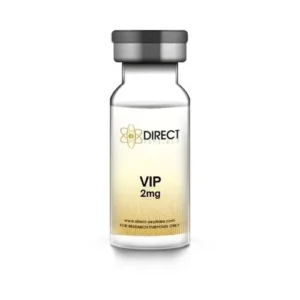 VIP (Vasoactive Intestinal Peptide) is another peptide that has potential for improving lung function in cystic fibrosis.
VIP (Vasoactive Intestinal Peptide) is another peptide that has potential for improving lung function in cystic fibrosis.
VIP helps reduce inflammation and promotes airway relaxation, which is particularly beneficial for CF patients who suffer from narrowed airways due to inflammation and mucus buildup.
By reducing airway constriction and controlling inflammation, VIP peptide can help improve lung function and ease breathing, which are key challenges for CF patients.
The peptide’s ability to support airway repair and reduce inflammation makes it a valuable candidate for enhancing lung health in CF patients.
Learn about VIP Peptide from Direct Peptides , a peptide that promotes airway relaxation and reduces inflammation, offering support for improved lung function in cystic fibrosis.
Peptides like Thymosin Alpha-1 (TA1), B7-33, and VIP are at the forefront of CF research, offering potential new approaches to improving lung health in cystic fibrosis. These peptides each play unique roles in regulating immune function, reducing inflammation, and preserving lung health, making them promising additions to CF treatment strategies.
While much of the research is still in the early stages, the potential benefits of these peptides are clear. Continued studies may lead to innovative therapies that improve symptom management, slow lung deterioration, and enhance the quality of life for CF patients. For now, peptides for cystic fibrosis offer a beacon of hope for better lung health and long-term survival in CF patients.
[1] Bellet MM, Borghi M, Pariano M, Renga G, Stincardini C, D’Onofrio F, Brancorsini S, Garaci E, Costantini C, Romani L. Thymosin alpha 1 exerts beneficial extrapulmonary effects in cystic fibrosis. Eur J Med Chem. 2021 Jan 1;209:112921.
[2] Dominari A, Hathaway Iii D, Pandav K, Matos W, Biswas S, Reddy G, Thevuthasan S, Khan MA, Mathew A, Makkar SS, Zaidi M, Fahem MMM, Beas R, Castaneda V, Paul T, Halpern J, Baralt D. Thymosin alpha 1: A comprehensive review of the literature. World J Virol. 2020 Dec 15;9(5):67-78.
[3] Pica F, Chimenti MS, Gaziano R, Buè C, Casalinuovo IA, Triggianese P, Conigliaro P, Di Carlo D, Cordero V, Adorno G, Volpi A, Perricone R, Garaci E. Serum thymosin α 1 levels in patients with chronic inflammatory autoimmune diseases. Clin Exp Immunol. 2016 Oct;186(1):39-45.
[4] Alam F, Gaspari TA, Kemp-Harper BK, Low E, et al. The single-chain relaxin mimetic, B7-33, maintains the cardioprotective effects of relaxin and more rapidly reduces left ventricular fibrosis compared to perindopril in an experimental model of cardiomyopathy. Biomed Pharmacother. 2023 Apr;160:114370.
[5] Rodrat M, Wongdee K, Teerapornpuntakit J, Thongbunchoo J, Tanramluk D, Aeimlapa R, Thammayon N, Thonapan N, Wattano P, Charoenphandhu N. Vasoactive intestinal peptide and cystic fibrosis transmembrane conductance regulator contribute to the transepithelial calcium transport across intestinal epithelium-like Caco-2 monolayer. PLoS One. 2022 Nov 18;17(11):e0277096.
Shop ALL Peptide Vials, 99% Pure online at Direct Peptides today!
TA1 peptide is being researched for its ability to support immune cell activation, especially T-cells, which help defend against respiratory infections. By regulating immune responses, TA1 may help reduce excessive inflammation triggered by repeated lung infections. Though not a clinical treatment, early findings suggest TA1 could play a supportive role in improving immune resilience in cystic fibrosis.
Research suggests TA1 may help balance immune responses that contribute to chronic lung inflammation in cystic fibrosis. By promoting controlled immune activity, TA1 may help protect lung tissue from ongoing inflammatory damage. Although not approved for medical use, TA1’s immunomodulatory effects are being studied for their potential to support long-term lung health in CF.
TA1 peptide appears to help regulate immune activity that contributes to persistent lung inflammation in cystic fibrosis. By promoting balanced inflammation responses, TA1 may help limit the tissue damage that develops over time. While not a treatment, studies suggest TA1’s immune-modulating properties may make it a useful research candidate for inflammation-related lung challenges.
Peptides are being studied as potential future tools for supporting immune function and inflammation control in CF, but they are not replacements for standard treatments. Their main role today is in early-stage research exploring how they may complement existing therapies. More studies are needed before any peptide can be considered a therapeutic option.

New Reduced Price
New Reduced Price
New Reduced Price
New Reduced Price
Thymosin Alpha1 Pre-Mixed Pen 10mg Peptide
£58.83 – £158.84Price range: £58.83 through £158.84 Select options This product has multiple variants. The options may be chosen on the product page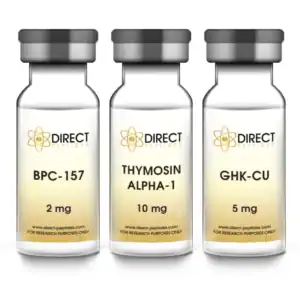
BPC-157 Thymosin Alpha-1 GHK-Cu Stack

B7-33 Nasal Spray
£40.10 – £75.20Price range: £40.10 through £75.20 Select options This product has multiple variants. The options may be chosen on the product page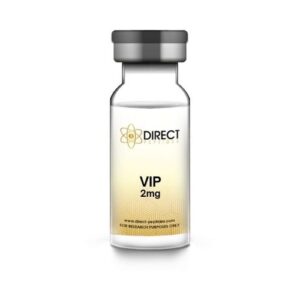
VIP Peptide Vial
£16.79 – £25.77Price range: £16.79 through £25.77 Select options This product has multiple variants. The options may be chosen on the product pageALL CONTENT AND PRODUCT INFORMATION AVAILABLE ON THIS WEBSITE IS FOR EDUCATIONAL PURPOSES ONLY.
DISCLAIMER: These products are intended solely as a research chemical only. This classification allows for their use only for research development and laboratory studies. The information available on our Direct Peptides website: https://direct-peptides.com is provided for educational purposes only. These products are not for human or animal use or consumption in any manner. Handling of these products should be limited to suitably qualified professionals. They are not to be classified as a drug, food, cosmetic, or medicinal product and must not be mislabelled or used as such.